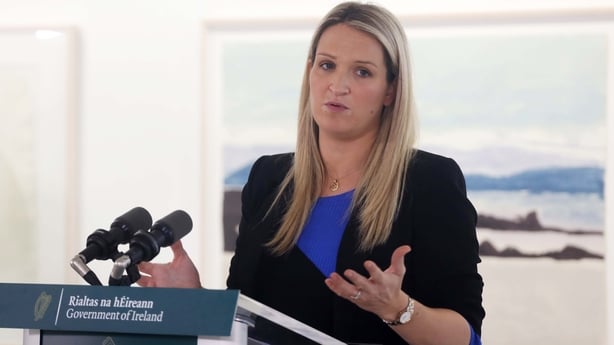Campaigners are urging the next government to follow through on planned late licence reforms that have yet to come in more than two years after they were announced.
In October 2022, the Department of Justice outlined the plan, which could see nightclubs given clearance to serve alcohol as late as 5am and stay open as late as 6am.
The new General Scheme of Sale of Alcohol Bill would also overhaul the current system for late bars, where the closing time would remain at 2.30am, but a new process for applying for the later licenses would be introduced.
But those supporting the changes fear it may not materialise as the political will may no longer be there.
What were the changes announced?
Along with allowing nightclubs to stay open as late as 6am, the reform would see normal pub trading hours extended to 12.30am every day of the week.
Under the current system, normal trading hours for pubs runs until 11.30pm Monday to Thursday, 12.30am on Fridays and Saturdays, and 11pm on Sundays.
Both pubs and off licences would also be permitted to open at 10.30am any day of the week, compared to the current Sunday opening times for both, which is 12.30pm.
A new system would see annual late bar permits applied for through the District Court, and online renewals would available in cases where there are no objections.
Currently, venues that want to stay open later must apply for Special Exemption Orders for each night through the Circuit Court.
Matter for next government
At the time, Minister for Justice Helen McEntee said these changes were more suited to modern needs as some of the current laws in this area stretch back as far as 200 years.
Supporters initially hoped that the reform would be brought in by Summer 2023, but now the Department of Justice says it will be a matter for the new government and there is currently no timeline or guarantee of its implementation.

CEO of the Licensed Vintners Association Donall O'Keeffe is one of those who is looking for the change.
He told RTÉ’s This Week that the current system is "extremely bureaucratic, it’s ridiculously expensive, it’s damaging the viability of late bars up and down the country".
He added that he believes Dublin in particular needs the nightclub aspect to "add to diversity and vibrancy in the nighttime economy".
Last February, Minister McEntee said that there were less than 70 nightclubs left operating in Ireland and that she envisaged only a small few of those staying open later under the new system.
Give Us The Night's Sunil Sharpe has been campaigning for later dance venues for a number of years and said that this change is vital for the survival of clubs.
"We want to see a clear timeline in the programme for government to publish this bill and enact it as soon into the next government as possible.
"What’s being proposed in Ireland is a small set of changes that should have been brought in decades ago and make things a little bit easier for the last remaining dance venues in Ireland."
Concerns
There has also been some concerns expressed around the plan since its announcement.
CEO of Alcohol Action Ireland Sheila Gilheany believes that there are risks involved in expanding alcohol trading hours.
She said: "We know that when you increase licensing hours you increase the sales of alcohol, and when you increase alcohol consumption you increase the harms that come from that."
Former Chief Medical Officer Breda Smyth also raised this issue, while garda management said it will need more resources to deal with public order offences if alcohol licences are expanded.
The Road Safety Authority was another group that expressed concern, saying the changes may lead to more drink-driving cases.
Independents may lack interest
Although Fine Gael's election manifesto pledged to bring through the change, Fianna Fáil's 196-page document made no mention of the nighttime economy or licencing reforms.
Green Party councillor for Dublin City Hazel Chu supports the change, but fears it will not be prioritised by the next government.
She said: "Because this wasn’t enacted via legislation, what will happen is this will have to come back to the table.
"It may need to go through a committee again for looking at what the legisation will look like.
"And that is a huge problem because if there wasn’t a will last government when you had a smaller coalition party which is the Greens pushing and pushing for it, you will not have the will now if you have independents who haven’t been looking for it and probably won’t be looking for it."







